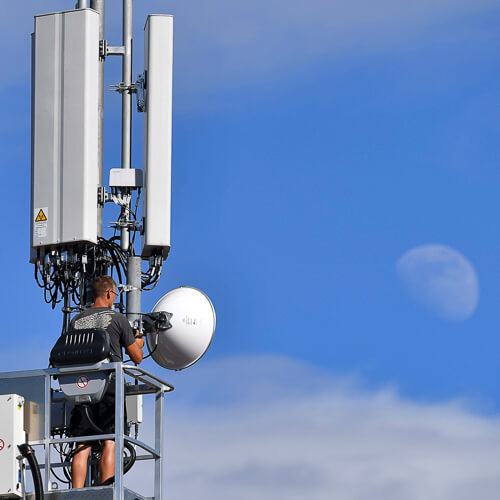As US 5G growth slows, winners and losers emerge
According to the financial analysts at BofA Global Research, Verizon had hoped to replicate its 4G success with an early bet on 5G. Did it work? 'It has not,' they wrote.

Levels of customer growth in the US wireless industry are coming back down to historic levels after a bubble of outsized growth in 2021, according to the financial analysts at New Street Research.
That cooling is revealing some of the industry's winners and losers. T-Mobile, for example, is emerging as a 5G favorite, while Verizon is quickly becoming vilified.
"In 2009 Verizon made a gamble that moving fast to 4G with pre-standard technology would extend its 'can you hear me now' leadership in 3G. It worked," wrote the financial analysts at BofA Global Research in a new note to investors. "Verizon gambled again in the last several years that 5G would give birth to a similar degree of novel consumer and/or business demand. It has not."
The analysts continued: "Verizon's understandable fixation, therefore, on 'what is next' led it down a path where, unfortunately, it now falls short on 'what is now'."
In their note, the BofA analysts downgraded their opinion of Verizon's stock from "buy" to "neutral" following the operator's troubled second quarter results.
Back to normal
Verizon's recent woes are noteworthy given that it may be facing a slowdown in customer growth across the telecom industry. Verizon and the rest of the US wireless industry benefited from an outsized growth in the number of new customers during 2021. Normally US operators accumulate a total of around 5 million new customers each year, but that figure reached almost 10 million last year.
Figure 1:  (Source: dpa picture alliance / Alamy Stock Photo)
(Source: dpa picture alliance / Alamy Stock Photo)
"Whatever drove the excess growth, it's gone now," wrote the analysts at New Street. "Growth in the first half of this year is right in line with 2020 and 2019 as well as the four-year average preceding 2021."
They argued that collectively US wireless providers added around 2 million new customers during the first half of 2022, notably down from the 4.3 million they gained during the same period last year but mostly in line with figures from the first half of 2020 and 2019.
The analysts noted that their calculations have been challenged by 3G network shutdowns this year. They said operators have been using "nefarious adjustments" to make it difficult to account for those affected customers.
Regardless, "we don't have a strong view on what happens next," they wrote.
T-Mobile a favorite
While some analysts are lowering their ratings on Verizon's stock, others are raising their forecasts for T-Mobile.
In a recent note to investors, the analysts at Wells Fargo wrote that T-Mobile's strong second quarter results "helped dispel any lingering concern" that the company would suffer from the same financial troubles that have affected both Verizon and AT&T.
"We've inched our [T-Mobile] estimates higher across the board for 2022 and 2023, particularly with wireless service revenues (where a recent renewed wholesale agreement with Dish is creating less near-term pressure on wholesale service revenues)," they wrote, pointing to T-Mobile's new $3.3 billion MVNO deal with Dish Network. "In addition, the 2% postpaid phone ARPU [average revenue per user] growth – and the faster adoption of fixed wireless – should enable T-Mobile to grow service revenues at ~5.4% in 2022, an industry-leading figure."
T-Mobile, according to the Wells Fargo analysts, "remains our top pick across the carriers."
Related posts:
— Mike Dano, Editorial Director, 5G & Mobile Strategies, Light Reading | @mikeddano
About the Author(s)
You May Also Like












